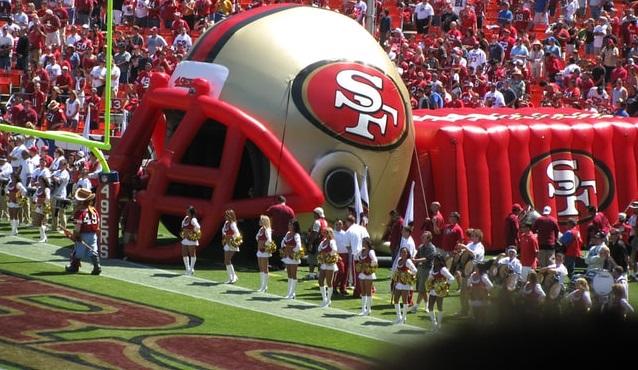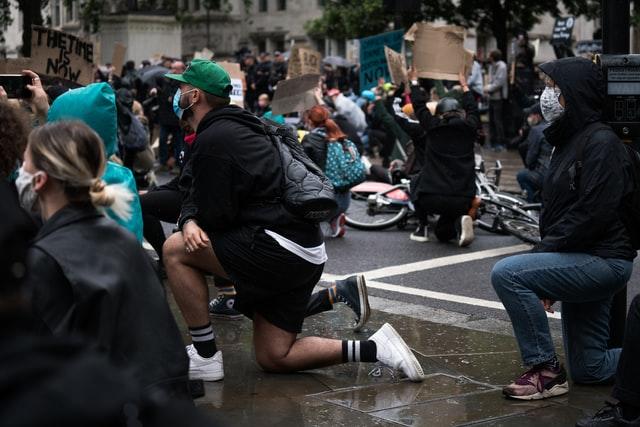From its entertainment value to the size of its business and industry, at a high level, soccer and politics are certainly synonymous. Whether you are a fan or working in soccer politics, it is an event-filled and exciting arena for everyone, from all walks of life.
This is well illustrated by the turmoil experienced by Chelsea Club owner, Roman Abramovich. The unusual legal case opens up a host of controversy from foreign and corporate money and how it was gained to the role of governments and whether players should be held accountable to corporate sponsors. It is soccer politics at its finest!
Unsurprisingly, Abramovich’s woes are not the first or last in the dramas of politics in soccer. To follow are few short case studies that emphasise the extent to which football and politics can collide.

Marcus Rashford's Free Lunch
Nobody could criticise Marcus Rashford's admirable initiative to keep UK children fed during the initial coronavirus lockdowns. Food insecurity is a serious concern all over the world including South Africa. From Cape Town to Cuba, his efforts were mimicked by philanthropists all over the world.

In the case of Mr Rashford, the controversy was not around his activism, but rather the selective nature of how the football league he represents embraced social causes. For instance, what makes one cause more worthy over another?
Guiding principles seem to include whether or not the issue at hand has universal, as well as league support. One could also argue that supporting caused that have minimal downsides while raising player profiles benefits the league.
Economist Stefan Szymanski highlighted that the leagues overall general attitude is to support and endorse the status quo rather than using its immense power to do good. Indeed, the level of activism used by Mr Rashford was even described by the Premier League CEO as having the ability to set uncomfortable precedents.
The decision by players to serve as activists for current socio-political or economic climates is, in itself, the politics of football and creates complex situations for football club ownership.
Pep Guardiola Wears Yellow
Catalan independence is a well-known thorny political issue where a disputed referendum led to the Catalan region unilaterally declaring their independence. Naturally, this was opposed by Spanish government who attempted to topple the Catalan government and even arrested seven of its ministers, who were charged with rebellion and misuse of funds.
Once the dust settled, native Catalonian player, Pep Guardiolo of Man City began wearing a discreet yellow ribbon on the field. Soon after, he was fined £20,000, even though some would call that one of his less controversial moves.
The great irony was that the ribbon was worn under his jacket for the first half of the game and only accidently revealed during the second half. It was also deemed ironic that he was allowed to wear the unconcealed ribbon during practice as well as to pre and post-game even, just not during the game.
Again, this was soccer politics at its best. Some would argue that it seems that the line of demarcation regarding football and politics depends on whether any protest or activism will land a financial hit to the club in question.
Colin Kaepernick Takes a Knee
In the United States, football is a different sport that involves athletes deliberately crashing into each other while wearing padding and safety gear. And, while soccer is all about footwork where only goalkeepers get to use their hands to touch the ball, in American football, the ball gets thrown by hand. Kicking is only permitted in specific conditions.
Even though it has a very high profile, American football is not known the kind of activism that soccer and politics bring together. However, there are certainly controversies when it comes to both individual players and teams.

One obvious controversy is the issue of remuneration. Players earn millions from both the league and product endorsements, however cheerleaders barely earn enough to live on. In addition, they are expected to attend events outside of cheerleading duties for which they do not get paid.
Sadly, these are not the only women in sports fight for equality. This is just one of the places where the politics of football makes its mark in the United States.
At the height of the Black Lives Matter protests (yet before George Floyd’s untimely death), Colin Kaepernick 'took a knee' while the National Anthem played. According the rules of the National Football League handbook his actions were not illegal and that players can choose to sit or stand for the duration of the anthem.
Despite this, the politics of football kicked in with immediate severity. The outcome was that Mr Kaepernick was blacklisted from the sport, however along the way other public figures spoke out vociferously about their feelings on ‘taking a knee’. This even included former President Trump who made it very clear how such protests should be dealt with and what would happen to players who engaged in such demonstrations.
Even though Kaepernick’s record as an American football player is exemplary and he has never been charged with sports doping or other offences, his reputation with American Football bodies has been tarnished. This is minor when considering that he used American football and politics to spark a global movement.
There is an example of football and politics if there ever was one.
Politics in Soccer and Ownership
The Roman Abramovich case provides a giant spotlight on some of the most diabolical aspects of club ownership from the public’s perspective.
Mr Abramovich is named as the most generous philanthropist ever to come out of Russia. His contributions include the following:
- donations of over $2.5 billion for hospital, schools and infrastructure in Chukotka, a province in Russia.
- he also donated a further £1.5 billion to the Pole of Hope charity, which outsources charitable help to that region.
- donations in excess of more than $5oo million to Jewish causes in Russia as well as around the world.
- he financed the planting of more than 25,000 trees in memory of Lithuanian Jews.
- he funded a programme to unite Jewish and Arab children through football. The programme is named ‘Playing Fair, Leading Peace’.
- during the worst parts of the COVID pandemic, he financed NHS nurse accommodation in hotels to make travel easier on them.
These are all kind deeds that have positively impacted the public, yet it still matters that Abramovich wangled his way into the UK. The question is does his money which has benefited humanity, outweigh the fact that he is now associated to a murdering global political enemy.
Very often, these ethical and moral questions, like many of those brought on by the politics of football, become treated as political imperatives.

As already mentioned, football club owners like to maintain a low profile. They're happy to make profits and entertain, but prefer not to make waves. And at the heart of it, that’s where politics in soccer which aims to keep the peace, ends up making little difference in a world where it has massive influence.
In the end whether club owners decide to engage in philanthropy is separate to whether they allow players to engage in protests that are on or off the field. Regardless of how worthy the cause or how discreetly it is done, there is a criticism that football bodies have cultivated a culture of ‘we only pay you to play.’
That is one of the negative aspects of club ownership, another has to do with who owns them.
Most EFL Championship and Premier League owners are also foreign investors who have substantial stakes in those clubs. Along with the economic ideas and business culture, they also bring social values of their native countries. In many ways, these values and views will influence the socio-political atmosphere of their clubs which means that they dictate the causes they will stand for or not support.
Nobody can say that soccer politics does not exist. Politics in soccer has always played a role and in fact, should continue to do so.
Soccer and politics examples like those mentioned above can highlight social injustice for the whole world.
One could assume that socially-conscious athletes like Colin Kaepernick and Marcus Rashford come to their views as a result of once been on the receiving end of inequality and injustice themselves. This of course is not limited to politics in soccer, but in all areas of sport and with people of influence all over the world.
Whether it is football and politics, or any other sport, athletes have the golden opportunity to use their fame and influence as a platform to highlight social injustice. They have the power to sway public opinion and to affect change where pure politics cannot reach. In a way, these individual athletes play an important ambassadorial role between soccer and politics, or any other sport, in practising sports diplomacy.
Summarise with AI















